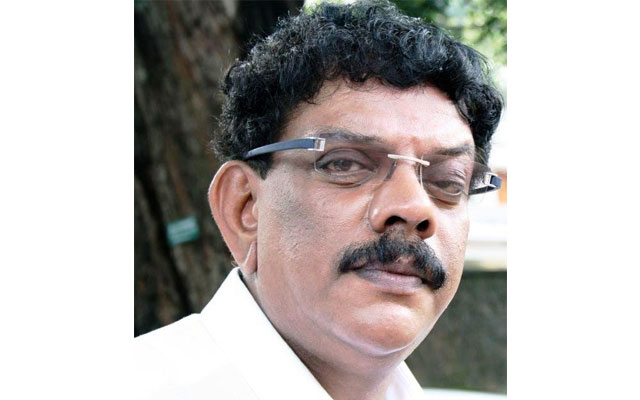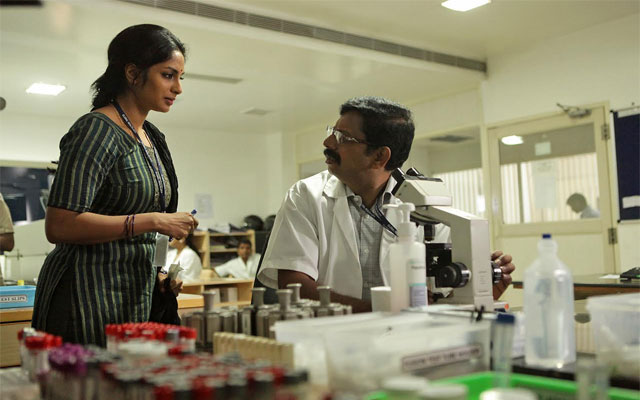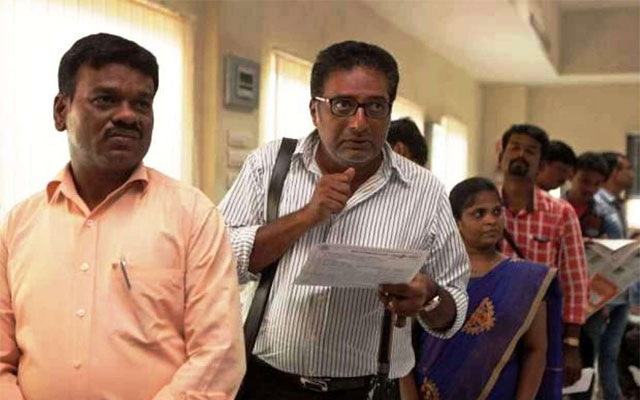
I am more greedy than ambitious: Priyadarshan
Priyadarshan has made, till now, 91 feature films in Malayalam, Hindi, Tamil and Telugu, many of them box office hits with repeat value. He also makes commercials. He has established himself as one of the most successful directors of mainstream cinema across languages and regions.
Excerpts from an interview:
You decided to break into socially conscious cinema with a trilogy recently. Would you elaborate?
There are films you do because you are passionate. Then there are films you make because you are greedy. I am greedy so I make films that fit into the entertainment category the mass audience loves to watch. But I also want to feed the director in me, and not just make a film to fill my pocket. I am a man who understands and enjoys both kinds of cinema. My mind yearns for appreciation too. I want recognition from all quarters.
Did this motivate you to make the trilogy?
Yes, I decided to make a trilogy of socially conscious cinema. The first was Kanchivaram (2007) which bagged the Best Film Award and the Best Actor Award at the 55th National Film Awards. The film also brought me the Zenith Asia Award for Best Director. Sila Samayangalil (Sometimes) is the second which is bagging awards but is yet to release commercially. After this, I have decided to make a film on female foeticide.
 Sila Samayangalil
Sila Samayangalil
What is Kanchivaram about?
The story is a period film set against the backdrop of 1948. It deals with the oppression and exploitation of silk weavers who are masters at their craft but cannot afford to buy even a piece of silk for their daughter’s wedding or funeral. How a silk weaver, buried under poverty rises against this and motivates his peers to rebel against exploitation is what the film is about.
Sila Samayangalil is getting rave reviews from critics across the country. What’s the story about?
Sila Samayangalil is about AIDS and the stigma surrounding it. AIDS is an uninteresting subject. You can at best make a documentary about it which few will watch. The challenge was to turn a dry subject into a thriller with a bit of comedy. A thriller gets through to people, which in turn, raises awareness. It is not just about sending a message, we have SMSes or social networking sites to do that. The film plays more on the fear of being diagnosed as HIV+ than on HIV+ victims themselves.
How did you structure the film?
The film follows a group of people as they await the results of their Elisa tests that would reveal whether they are HIV+ or not. They have very different reasons for believing that they might be HIV+. I have not repeated a single shot in the film and it took all of my 36 years of experience to be able to do this. Sila Samayangalil translates to “Sometimes” and the bottom line is how sometimes life may take a different track which could change one’s entire life in just a few seconds. The entire film, except for the opening, is set inside the waiting room of a pathological lab where the characters assemble and wait for the results to come in.
The film is yet to be released but is on an award-winning spree across festivals. How do you react to awards?
Being awarded for a film is an honour. It is an accreditation to the sustained efforts, passion and commitment. The amalgamation of the best of the talent combined with belief on our respective works gives us this honour. The film won the “Green Rose Award” and the “Yellow Rose Award” apart from the award for the ‘Best Film from Asian continent’ category. It also bagged the Jury Award for Best Film at the Chennai International Film Festival. I would love to dedicate these awards to that great maestro of music, Ilyayaraja, the DOP Sameer Thajir, art director Sabu Cyril, editor Beena Paol, Vijay who wrote the dialogue and the entire crew who have acted in Sila Samayangalil.
 Sila Samayangalil
Sila Samayangalil
What made you decide to make the film in Tamil and not Malayalam or Hindi?
I could have made it in Malayalam but every film is an art film there. The whole State is like one big town. Hindi I had not even thought about because all these years, the audience there has accepted me very well as a mainstream filmmaker. But Tamil Nadu, with its villages, their customs and culture, gives a filmmaker a rich setting.
What about the commercial risks you took with these two films?
I didn’t care about commercial risks when I made these two films. Nor did I care about what people thought or would think of Kanchivaram or Sila Samayangalil. Commercial films have a way of straitjacketing you because you are constantly trying to speed up every moment, over-explaining every little thing. Art films give you the freedom you cannot get while making commercial films. When Kanchivaram won two National Awards and Shyam Benegal happened to watch the film, he, and many other in the audience asked whether the director was the same guy who made Hera Pheri? This is what I call straitjacketing filmmakers. I want to come out of this. And as I have repeated several times before, I would love to cross the borders and make a film in Hollywood. I am more greedy than ambitious.
Trans World Features (TWF)
Support Our Journalism
We cannot do without you.. your contribution supports unbiased journalism
IBNS is not driven by any ism- not wokeism, not racism, not skewed secularism, not hyper right-wing or left liberal ideals, nor by any hardline religious beliefs or hyper nationalism. We want to serve you good old objective news, as they are. We do not judge or preach. We let people decide for themselves. We only try to present factual and well-sourced news.






